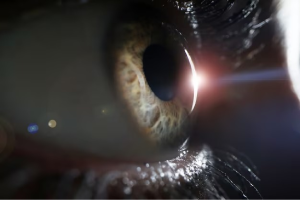Multifocal Intraocular Lenses (IOLs):
Purpose: Multifocal IOLs are designed to provide clear vision at multiple distances, typically near, intermediate, and distance.
Advancements: Ongoing research has led to improvements in the design of multifocal IOLs, reducing issues such as glare and halos, which some patients may experience. Newer generations of multifocal lenses aim to enhance visual quality.
Extended Depth of Focus (EDOF) IOLs:
Purpose: EDOF IOLs are engineered to extend the range of vision, providing clear vision at varying distances without the distinct focal points of multifocal lenses.
Advancements: Advances in optical design have contributed to improved EDOF IOLs with minimized visual disturbances, providing patients with a broader range of vision.
Accommodating IOLs:
Purpose: Accommodating IOLs mimic the eye’s natural ability to adjust focus, providing a range of clear vision without distinct focal points.
Advancements: Ongoing developments focus on enhancing the accommodating mechanism to provide more natural and efficient adjustments in response to different visual tasks.
Toric IOLs for Astigmatism Correction:
Purpose: Toric IOLs are specifically designed to correct astigmatism during cataract surgery, reducing the need for additional procedures to address this refractive error.
Advancements: Continued improvements in toric lens designs aim to enhance the accuracy and predictability of astigmatism correction.
Light-Adjustable IOLs:
Purpose: Light-adjustable IOLs allow postoperative adjustments to the lens power using UV light. This feature provides a unique advantage for refining vision after cataract surgery.
Advancements: Research in light-adjustable IOL technology aims to optimize the adjustability process, allowing for fine-tuned vision correction.
Customized Wavefront Technology:
Purpose: Customized wavefront technology involves mapping the eye’s unique optical characteristics to guide the creation of personalized IOLs.
Advancements: Advancements in wavefront technology aim to improve the precision of these measurements, leading to more customized and accurate visual outcomes.



Trifocal lens review
Cataract surgery using lasers, known as laser-assisted cataract surgery (LACS) or femtosecond laser-assisted cataract surgery (FLACS), is a modern and advanced technique that utilizes laser technology to perform certain steps of the cataract removal process. Traditional cataract surgery involves manual incisions and the use of ultrasound to break up and remove the cloudy lens. In laser-assisted cataract surgery, a femtosecond laser is employed to enhance the precision of specific surgical steps.
Here’s an overview of how cataract surgery with lasers is typically performed:
Preoperative Imaging:
Detailed imaging of the eye is conducted before surgery. This imaging helps create a three-dimensional map of the eye, allowing for precise planning of the surgical procedure.
Femtosecond Laser Application:
The femtosecond laser is used to create incisions in the cornea and the capsule that surrounds the natural lens. These incisions are more precise than manual incisions.
Capsulotomy:
The laser is employed to create a precise and perfectly circular opening in the lens capsule. This opening allows access to the cataract-affected lens for removal.
Lens Fragmentation:
The laser is used to break the cataract-affected lens into smaller, more manageable pieces. This process is similar to the traditional phacoemulsification technique but may offer increased precision.
Astigmatism Correction (Optional):
The laser can be utilized to make precise incisions in the cornea to correct astigmatism if needed. This step may reduce the dependence on glasses for distance vision after surgery.
Intraocular Lens (IOL) Placement:
After the laser has prepared the eye, the surgeon proceeds with the insertion of an artificial intraocular lens (IOL) to replace the natural lens that was removed.
Postoperative Care:
The postoperative care and recovery process are similar to traditional cataract surgery. Patients may be prescribed eye drops to prevent infection and control inflammation.
EDOF lens review
Premium monofocal lens Review
1. What is cutting-edge lens technology for cataracts, and how does it differ from traditional lens options?
Cutting-edge lens technology for cataracts includes advanced intraocular lens (IOL) options, such as multifocal, toric, or extended depth of focus lenses. These lenses offer enhanced visual outcomes, addressing various vision issues compared to standard lenses.
2. Who is a suitable candidate for cutting-edge lens technology offered by Mr Deshmukh for cataracts?
Patients with cataracts and specific vision needs, such as astigmatism, presbyopia, or desire for reduced dependence on glasses, may benefit from advanced lens options. Mr Deshmukh assesses candidacy during a comprehensive evaluation.
3. What are the advantages of choosing cutting-edge lens technology over conventional cataract surgery options?
Advanced lens technology offers benefits like improved near and distance vision, astigmatism correction, reduced need for reading glasses, and enhanced visual clarity in various lighting conditions, providing a more comprehensive vision correction solution.
4. How does Mr Deshmukh determine the most suitable cutting-edge lens technology for each patient’s cataract treatment?
Mr Deshmukh evaluates patients’ eye health, lifestyle, visual needs, and preferences to recommend the most appropriate advanced lens option tailored to their individual requirements.
5. Are there any specific considerations or additional procedures associated with using cutting-edge lens technology for cataract surgery?
Mr Deshmukh provides detailed pre-operative information and discusses any additional considerations or steps associated with advanced lens technology. This may include specific post-operative care guidelines to optimize visual outcomes.










